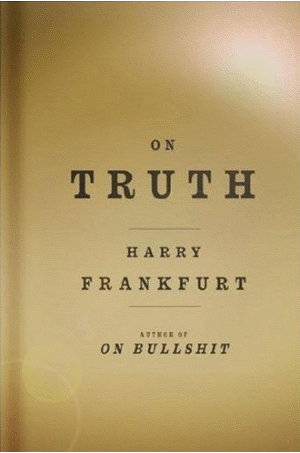
On Truth
Encyclopedia

Harry Frankfurt
Harry Gordon Frankfurt is an American philosopher. He is professor emeritus of philosophy at Princeton University and has previously taught at Yale University and Rockefeller University. He obtained his B.A. in 1949 and Ph.D. in 1954 from...
1986 essay, On Bullshit
On Bullshit
On Bullshit is an essay by philosopher Harry Frankfurt. Originally published in the journal Raritan in 1986, the essay was republished as a separate volume in 2005 and became a nonfiction bestseller, spending twenty-seven weeks on the New York Times Best Seller list.In the essay, Frankfurt defines...
.
In "On Truth", Frankfurt develops the argument that individuals should care about the truth
Truth
Truth has a variety of meanings, such as the state of being in accord with fact or reality. It can also mean having fidelity to an original or to a standard or ideal. In a common usage, it also means constancy or sincerity in action or character...
, regardless of whether they intend to be truthful. Frankfurt explicitly avoids a definition of "truth" beyond the idea of the commonsense concept of truth people commonly hold, i.e., that which corresponds to reality
Reality
In philosophy, reality is the state of things as they actually exist, rather than as they may appear or might be imagined. In a wider definition, reality includes everything that is and has been, whether or not it is observable or comprehensible...
.
Frankfurt's strategy is to show that the truth, whether an individual is to be truthful or not, is integral to nearly every endeavor, the final point of his argument being that it is a requirement for self-knowledge
Self-knowledge
Self-knowledge is a term used in psychology to describe the information that an individual draws upon when finding an answer to the question "What am I like?"....
and therefore all distinctions between ourselves and the world. Frankfurt concludes that the importance of truth, and thus the need to care about it, is incorrigible thereby.

